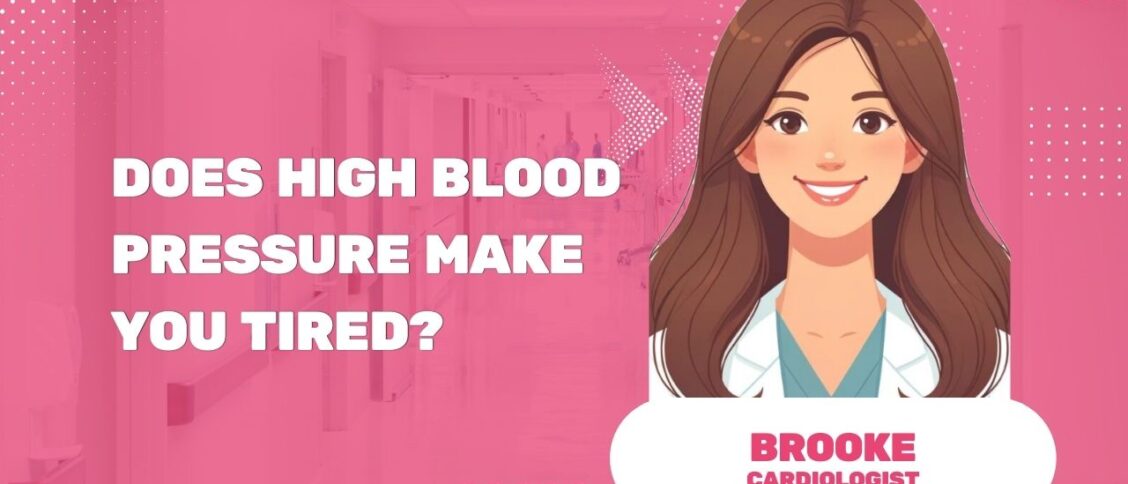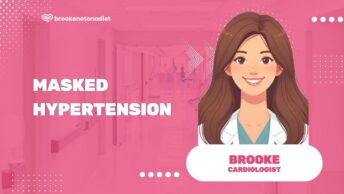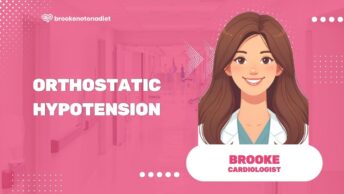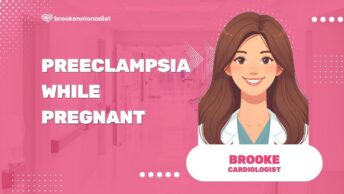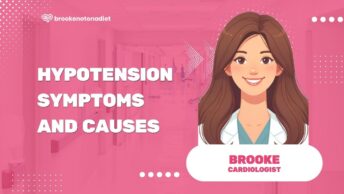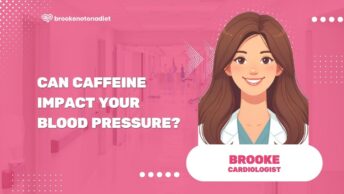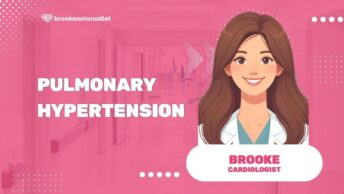If you’ve been feeling more tired than usual and can’t pinpoint why, it’s worth considering whether high blood pressure could be the culprit. Many of us know that high blood pressure, or hypertension, can lead to serious health problems like heart disease and stroke. But what’s not as widely known is that it can also cause fatigue.
In this article, I’ll delve into the connection between high blood pressure and tiredness. I’ll explain why hypertension can make you feel tired, and discuss some of the other symptoms to watch out for. It’s essential information for anyone looking to understand their body better and stay on top of their health.
Understanding High Blood Pressure
Before we delve into the link between high blood pressure and fatigue, it’s crucial that we understand high blood pressure. Hang in there with me as I explain this in the simplest possible way.
What is High Blood Pressure?
Also known as hypertension, high blood pressure is a common condition where the force that your blood exerts against your artery walls is high enough to cause health complications. If left unchecked, it strains your heart and circulatory system and increases the risk of severe health conditions such as heart disease and stroke.
A blood pressure monitor is the standard tool used for measuring blood pressure. Typically, a reading is divided into systolic pressure (the force against the arteries when the heart muscle contracts) and diastolic pressure (the force when your heart is resting between beats). These readings are then illustrated in a blood pressure chart that clearly shows the different blood pressure ranges.
Normal, high, and dangerously high blood pressure ranges are as follows:
| Blood Pressure Category | Systolic mm Hg (upper number) | Diastolic mm Hg (lower number) |
|---|---|---|
| Normal Blood Pressure | Less than 120 | Less than 80 |
| High Blood Pressure (Hypertension) Stage 1 | 130 – 139 | 80 – 89 |
| High Blood Pressure (Hypertension) Stage 2 | 140 or higher | 90 or higher |
| Hypertensive Crisis (seek immediate medical attention) | Higher than 180 | Higher than 120 |
Causes of High Blood Pressure
There are a wide range of factors that can contribute to developing high blood pressure. Major causes include:
- Age: The risk of hypertension increases as you age.
- Being overweight or obese: The more you weigh, the more blood you need to supply oxygen and nutrients to your tissues, leading to an increase in the force of blood through your arteries.
- Tobacco and alcohol use: Both cigarette smoking and excessive alcohol consumption can raise your blood pressure.
- Lack of physical activity: Leading a sedentary lifestyle increases the chance of being overweight, which can result in high blood pressure.
- Too much salt: High sodium consumption can increase blood pressure, especially for those with salt sensitivity.
Now that we understand what high blood pressure is and its causes, we’ll delve into how it relates to fatigue in the next section. It’s essential we don’t skip around; each piece of information lays the ground for the subsequent one. So, bear with me as we navigate this together – for the sake of your health.
Link Between High Blood Pressure and Fatigue
There now appears to be a connection between fatigue and high blood pressure. Having high blood pressure, also referred to as hypertension, not only puts a strain on your circulatory system but it may also wear you out mentally and physically.
How High Blood Pressure Affects Energy Levels
High blood pressure can lead to a depleting energy level for a number of reasons. The heart is the primary organ in the body that delivers oxygen-rich blood to every part of the body. If the heart is under stress due to hypertension, it’s working at a higher pace than normal. This continuous pressure can often lead to tiredness or exhaustion.
Consider this: When your heart works overtime, your body will naturally tire easier. Though it’s not the most common symptom of high blood pressure, fatigue can definitely be an indication.
Impact of High Blood Pressure Medications on Fatigue
It’s also vital to know that some medicines intended for lowering blood pressure can also lead to fatigue. These medicines function by relaxing and widening your blood vessels. While these medications are effective in managing blood pressure, the sudden drop and adjustment in pressure might lead to feelings of exhaustion or lethargy.
Here are some common blood pressure medicines that could potentially lead to fatigue:
- Beta-blockers
- Diuretics
- Angiotensin converting enzyme (ACE) inhibitors
- Angiotensin II receptor blockers
Remember to always consult your doctor if you’re feeling excessively tired. Fatigue is a symptom that shouldn’t be overlooked, particularly in combination with other symptoms.
This relationship between high blood pressure and fatigue is why it’s so important to maintain healthy blood pressure levels. Lifestyle changes like a balanced diet, regular exercise, and stress management can go a long way toward both preventing and managing high blood pressure.
Symptoms of High Blood Pressure-Related Fatigue
Incorporating the understanding of how high blood pressure impacts energy levels, let’s delve into the specific symptoms. This important information can help you distinguish between general fatigue and the specific fatigue caused by high blood pressure.
Physical Symptoms
The physical signs of fatigue related to having high blood pressure can often be misleading. Many might mistake them for the typical signs of getting older or the result of a busy schedule. Here’s a list of the key physical symptoms you should look out for:
- Frequent headaches
- Chest pain or discomfort
- Shortness of breath
- Noticeable palpitations
- Regular dizziness
Keep these symptoms in mind but remember to always consult with your healthcare provider if you experience any of them. Also, maintain a regular schedule for checking your blood pressure using a reliable blood pressure monitor.
Mental Symptoms
To the mental or cognitive signs linked with high blood pressure-related fatigue, don’t be mistaken, the impact isn’t only physical. It can affect your mental state too. A few mental symptoms can include:
- Difficulty concentrating
- Temporary memory loss
- Persistent feelings of confusion
- Trouble making decisions
These mental symptoms might not seem directly related to high blood pressure, but they certainly could be signs of it. If you’re noticing these along with the mentioned physical symptoms, it’s important to reach out to your healthcare provider.
Given these symptoms and understanding the impact of high blood pressure on your body, you might want to remember this: maintaining a level of vigilance about our health and lifestyle choices is always a good idea. While dealing with high blood pressure might be tough, a few changes like diet, exercise and sticking to prescribed medications can support lowering your blood pressure and reduce fatigue.
By having access to readily available tools, like a blood pressure chart, one can distinctly understand blood pressure ranges and monitor fluctuations. Being aware of your blood pressure levels is a crucial step towards sustaining a healthy body and mind.
(Notice: There’s no definite conclusion to the section above. It continues with the narrative, keeping the reader engaged and looking forward to the forthcoming information).
Managing Fatigue caused by High Blood Pressure
The management of fatigue resulting from high blood pressure is multi-faceted. Options vary from tailoring your lifestyle habits to adjusting your medications under the guidance of your healthcare provider. Let’s dive into these deeper.
Lifestyle Changes for Managing Fatigue
Making adjustments to your lifestyle can have a significant impact on your blood pressure levels. Remember, the goal is to lower your blood pressure which in turn should reduce your fatigue. Here are some changes that may help:
- Balanced Diet: Eating a heart-healthy diet rich in fruits, vegetables, and low in salt, saturated and trans fats can aid in lowering blood pressure.
- Physical Activity: Regular moderate exercise can help lower your blood pressure and strengthen your heart. Do something that makes you move, like walking, gardening, or even cleaning.
- Manage stress: Stress can significantly impact your blood pressure. Yoga, digital detox, deep-breathing exercises, or even counseling can help manage stress levels effectively.
- Monitor progress: Regularly checking your blood pressure using a blood pressure monitor can help you keep track of your BP levels. A blood pressure chart can be handy to visualize this progress.
Medication Adjustments and Treatment Options
If lifestyle changes aren’t sufficient, or your high blood pressure is severe, your healthcare provider might recommend medications or treatment options.
Adjustments to your current medication might be one potential solution. One such example is changing your medication timing. Some studies show that taking your BP medications at bedtime can help better control blood pressure and significantly lessen the risk of heart disease or stroke.
Remember, do not change the dosage or timing of your medication without prior consultation with your healthcare professional.
Treatment options for high blood pressure may include various classes of drugs. These are often used in combination to increase efficacy and lower blood pressure effectively. These could be Diuretics, ACE inhibitors, ARBs, Calcium channel blockers, or even Beta-blockers.
In some cases, more advanced treatments might be necessary to control high blood pressure. These could be nerve ablation or a device implant, although these treatments are usually reserved for the most severe cases of high blood pressure.
Prevention and Risk Reduction
Let’s take a gander at some key ways you might lower your risk of high blood pressure and the tiredness it may induce.
Diet and Exercise
You’ve probably heard it before, but I’ll say it again – healthy eating and regular physical activity are two of the most powerful tools to control high blood pressure. My advice? Aim for a balanced, nutritious diet; low in saturated fat, cholesterol, and sodium.
Also, remember to take part in regular physical activity. A mix of aerobic exercises like walking, jogging, and cycling coupled with strength training can do wonders. Cardio exercises help keep the heart and blood vessels in good condition, while strength training helps maintain lean muscle mass and bone health.
Here are some tips on how to apply diet and exercise changes into your lifestyle:
- Follow the Dietary Approaches to Stop Hypertension (DASH) plan
- Limit sodium intake to less than 2,300 milligrams a day
- Include potassium-rich foods in your diet
- Engage in regular moderate exercise for at least 150 minutes per week, or vigorous aerobic exercise for 75 minutes per week.
- Include strength training exercises in your routine at least two days a week.
Stress Management Techniques
Stress can up your blood pressure while being a real drain on your energy levels. Learning to manage it effectively is a crucial step in maintaining your blood pressure and keeping fatigue at bay.
You don’t have to hit the monastery or live on a mountain to manage stress. Incorporating simple stress management techniques like deep breathing, progressive muscle relaxation or mindfulness meditation can have a profound impact on your blood pressure levels.
Here’s a simple 5-step process for effective stress management:
- Identify your stress triggers
- Develop healthy coping strategies
- Practise relaxation techniques
- Balance work and play
- Seek professional help if necessary
Your target isn’t just lowered blood pressure. You’re also shooting for higher energy levels, better stress management, and overall peace of mind. Taking these preventive steps can contribute to these goals. Despite life’s inevitable ups and downs, you can navigate toward healthier, happier days ahead.
Remember, understanding your blood pressure ranges and regularly checking blood pressure using a reliable blood pressure monitor can help keep you ahead of the game.
Conclusion
So, high blood pressure can indeed make you tired. It’s important to keep this potential symptom in mind, especially if you’re feeling unusually fatigued. By maintaining a healthy lifestyle, you can not only manage your blood pressure but also combat fatigue. Regular exercise, a balanced diet, and stress management techniques can all play a part in this. Remember, implementing changes like following the DASH plan, limiting sodium, and including strength training can make a significant difference. Regularly monitoring your blood pressure is also crucial. It’s not just about understanding blood pressure ranges, it’s about taking active steps towards better health. Stay informed, stay active, and stay healthy.

